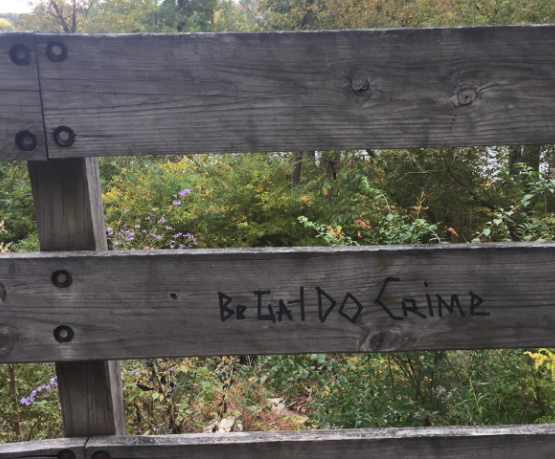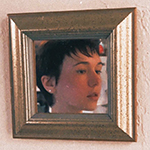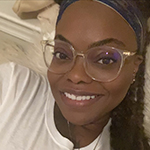Bone Clean
Wholesome Things: Scoured Bright and Dry
Preface
Something pried apart never comes back together the way it grew. With Bone Clean, I am telling you to stop punishing me for your knowing. Your knowing why you’re living this life and not another. Your face is on the wall; every spring they move the rock that hides you and watch you weep into their buckets.
The world to you is never tested. You think we’ll all be scoured bright and dry like you, the cleanest bones in the world. You don’t even imagine: the unwholesome shreds of things. Irremoveable stains.
I suddenly learned that I have never stopped being a thing. Calmness comes from recognizing patterns. Like how I know, instantly, that you’re supposed to control this interaction, and there is a buzzing click-jolt into place of hatred.
How can you and I escape historicity? How am I allowed to be in the present, or the future? How can I get out of the preface of being lost to mothers and fathers, of coming back from the mountains to kill them? I am not afraid this pain will last forever. I cannot see a future at all, even a false one.
To be “new”/experimental/forward-looking, you put the present violence in the past even as it happens.
Look how old-fashioned I am.
Look how bad I’m making you feel for something that can’t be undone.
Preface
I was young, during my twenties, but not so young that I couldn’t know better.
I spent a single unhappy semester in a low-residency MFA program. The in-person workshops took place in Louisville, and during these gatherings Charles Wright was circulated with reverence by all the hipster broets who styled themselves after Dust Bowlers. A young man, dressed to look like he had emerged, avec flannel, from The Grapes of Wrath, reverently handed me a Wright book as if it were my turn to receive the wafer. I read it and thought: “What.” (For instance, in “The Southern Cross,” that long, long poem, why isn’t it an apparent problem that female gender appears only as icon or figure or city subdued or sleeping sister or a…spider?) My mentor for the semester was an old white man who lived at the top of a mountain in Montana. I stopped turning in my packets of writing to him mid-way through the semester. I did not plan on ever writing again.
While completing a biology degree in Indiana, I earned my only A in an undergraduate creative writing class. The professor, another old white man, considered Merwin unpleasantly experimental due to lack of punctuation. He liked my writing very much and slanted my writing into something so small that I was hardly upright. This professor imprinted on me the desirability of slow nature and velar sounds. I found everything very beautiful all the time. I was so exhausted from the rich precision of the meditative mode that each poem I wrote for his approval was like wrenching my spine between two fists. At the end of the semester, he told me that I did not need to turn in a final portfolio, that I had far exceeded the requirements of the course. I went home and then felt empty for months. I did not plan on ever writing again.
Bone Clean covers the period of my life spent in the lower Midwest. Bone Clean is my reparations to myself as the young person who knew things were wrong even as I did them.
Preface
“I’ll suck on them,” my grandmother always said, beckoning me to hand over the leftover bones. My cousins and I would flee the room as the elders began lasciviously slurping the remains of the big family meal. My grandparents laughed as I covered my ears with my hands and squinted my eyes, trying to block out the unholy feasting of old Chinese people on the grey parts of cooked animals.
Preface
I needed to write Bone Clean because I have missed the late-night talks I had with the other women in my master’s writing program. We had all come from very far away to study the craft of writing in a tiny high plains town. We were all in our late twenties, married or divorced, and socially distinct from the younger, more glamorous students in our cohort because we were tired of drinking, and desperately tired of trying to find ourselves. It had already turned out that there wasn’t anything to find. Instead, since we were all living in a place that was cold and dark for most of the year, we would gather around someone’s kitchen table at night, still in our coats, when the babies were asleep, and methodically roll a dozen cigarettes. Then we would hold out our hands and ask the others to take their pick: lumpy or smooth, thick or thin, tight or loose. And then tramp outside in our boots and sit on the cold yard furniture: metal painfully grated against our backsides, or cracked plastic with too much give, or wood that never really dried out from all the melted snow. And we talked so much, gossiped and schemed and dissected.
Men would pass through our conversations—husbands letting out the dog, boyfriends joining for a smoke, friends wheeling their bikes through—but their brief intrusions were always overcome no matter how meaningful their contributions. Men who were present during these gatherings were shouted down, waved off, or left to quietly listen just outside of the circle of coated, smoking women. When the humidity was high, the smoke was hung up just above our hair. We talked and laughed so quickly and all at once that neighbors would often turn on their lights and stare out their windows. The conversations were a women’s space. The conversations were dependent on the collusion of women.
Bone Clean is my continuation of these women’s nights. We often spoke about women’s writing and relationships and health as if upholding all the subjects at once was easy. So easy that we would delve all the way down to the bone and pick it clean. I am still friends with many of the women I had these conversations with, but we are now distinct from each other. We graduated and separated. Bone Clean is my side of things, sending it out and waiting for their side of things. Bone Clean is my loneliness. My wish for a woman’s response, for our conspiracy.
Preface
I started writing Bone Clean after I went to view the Body Worlds exhibit when it reached Chicago. It had remained seemingly for months at one of the downtown museums and for weeks beforehand, and for weeks long after, drivers along Lake Michigan passed the unremitting streetlamp banners that displayed grotesque pictures of the plastinated bodies in various poses. Riding a bike. Posed as mother and daughter (or desexed father and desexed son), both pointing off into the distance. Suspended mid-leap/-kick with a basketball or football. All with their bright red ropey musculature and artistically flayed tendons and tissues.
I entered the halls of the exhibit expecting some kind of overwhelming smell or some other pervasive signal of decay. Instead, the museum spotlights were bright and beautiful, throwing the skinned bodies into the type of colossal beauty that serves antiquities and dinosaur skeletons. Some of the bodies were unnaturally stretched or enlarged, somehow standing ten feet tall and looming above the other bodies on pedestals at artistically pleasing intervals. These bodies are no longer bodies which are subject to decay. They are, in fact, not even preserved in time, their deterioration arrested. They have been converted to something else altogether via the plastination process, a mechanism of replacing all the living liquids of a body with plastics that are then hardened into shape. The bodies that go through this process transform into plastinates, a name that is given to all specimens that undergo this procedure, whether they are small animal scraps or an entire human body.
The Body Worlds exhibit that I attended in Chicago was a part of the Body Worlds franchise that is headed by Gunther von Hagens, developer of the plastination process. Von Hagens is a theatrical man, having founded and patented the plastination process in the 1970s. He went on to head several plastination centers and laboratories, one of which is a private workspace that is secreted away behind a revolving staircase. He wears a black fedora wherever he goes, and considers his life work to be the dissemination of anatomical knowledge. So intent on this legacy of bringing anatomy to the people, he has performed public and televised autopsies, has created several different strains of his world-travelling Body Worlds exhibits (Body Worlds: Animals, Body Worlds: Cycle of Life), and accepts all manner of bodies into his plastinated creations, including those of executed Chinese prisoners.
I call the plastinates creations because the human and animal plastinates are posed so melotheatrically (remember: revolving staircase, black fedora, etc.), something I found appealing and humorous when visiting the exhibit in Chicago. Later, I found out that the bodies—a woman laying on her side, one hand behind her head like a swimsuit model, a nearly full-term fetus sagging from her belly; a pair of humans atop a rearing, skinned horse, the mane and tail hair intact—might not all have been encased in Western skin. The delusion of Western-ness is aided by an artifice of the most probable signifier of race: the plastination technology still has trouble transforming the odd solution that makes up eyeballs, so most of the plastinates stare out with replica eyeballs that have blue irises. Though they are outfitted with Western accessories (the plastinates ride shiny bicycles and hold shiny Western instruments), they might have, in fact, been Central or Eastern Asian.
When finding this out, I couldn’t help but assume that the plastinates were derived from stolen bodies. If the bodies had been Western, they would have been happy bodies, donated from an excess of wealth and an investment in knowledge production. It is the Western bodies that are interested in science and posterity, as well as history with a dash of the occult or steampunk. Such bodies would desire inclusion in the carefully contrapposto Body Worlds exhibit, in which the artistry of the plastinate form is equally important to the anatomical education imparted.
If you know that the bodies of the plastinates were actually people from Kyrgyzstan or China, where bodies are devalued, anonymized, imprisoned in variously despotic ways, and totally invisibilized to the Western world, then you know that the plastinates came from unhappy bodies. They were likely forgotten or secreted, sold or trafficked, rather than donated. They would not have given themselves to science. They were more likely given to the Body Worlds industry because they were lost to their families.
The Body Worlds exhibits are the most literal embodiment of Western consumption of non-Western bodies. My work in Bone Clean is my exploration of the insatiability of Western consumption and the non-Western teeming that nourishes the richly flourishing body of consumption. This is a work in words for those who are voiceless because their bodies cannot be comprehended. Their bodies carry unfamiliar memories, and so cannot be accessed as bodies. So many feed the few.
Preface
The significance of my mediated skeleton lain against the stinging lattice: is for what follows.1
1 “Families need proof, Koff says—they come looking for recognizable clothing and say, ‘I want the bones.’
I, too, want the bones.”
– M. NourbeSe Phillip, Zong!
Preface
When I was six, my kindergarten teacher asked my mother to bring in the workbooks that my mother bought from the homeschool store and made me complete at home. In the workbooks were line drawings of underwater tableaus full of cheerful octopuses and encouraging starfish. There was also long division and fractions, carrying the one, and multiplication tables, sites of intense sadness because I so often did not understand the problems, did not want to be sitting at them, but had nowhere else to go.
When I started the first grade, and was then inexplicably carried away to the second grade a few months later—for the school administration, this was unprecedented; for me, it caused my aunt to sneer at the pencil lead I had smeared on my cheek in my excitement to show her my workbooks when she asked about them (I didn’t understand, until two or three years later, that adults could ask questions to which they didn’t want to hear the answers)—the place I found to go was the bathroom. As the child of a woman who regularly rifled through her daughter’s belongings, who gave me gifts and then weeks or months later combed the drawers and cabinets to reclaim them, the lock on the bathroom door was a revelation. I carried my books into the bathroom and read them under that sick white long-bulbed light that still despairs me to this day. I remember having some time, some quiet to myself, some kind of faint untraceable sadness and satisfaction at being alone, before my parents began to notice, using the screwdriver to break into the bathroom while I hid my books behind the toilet.
It is the privacy of writing that I sought for most of my childhood, writing to ease confusion even though my mother would go into my desk and page through my attempts at working out the problems of self-story, confronting me with their contents with a righteousness that lacked any guilt. My parents attempted to turn writing into a chore, buying me special journals and forcing me to write daily entries, reviewing them when I was done. In this way, the impulse to write for any length of time became shameful, wasteful and self-indulgent, especially when my mother liked to remind me that competency at reading and writing was something accessible to all (even to her, if she had been born in this country), and nothing special. Without being able to work through problems behind the closed doors of writing, I’m not sure I thought much at all, and was mostly just a receptacle for abuse.
I must have made it easy, having been trained for it, and constitutionally suited to withstand it without crying or fighting back. I was slow, as a child, to understand jokes and identify the visual indicators that people use on their faces to relay their intent. I have memories of being insulted, my first reaction being to watch the scene as from a distance before understanding that I was supposed to feel bad. Often I didn’t feel anything at all, waiting until I was walking home alone, or standing in front of the bathroom mirror before a bath, to think about why things happened to me.
It is the resentment of turning my writing into something for others (the potential for the posterity of communication realized through the act of writing) that confuses me. If I can make writing truly my own, then I have no initial impulse to share it with others. I am too greedy for privacy and solitude. But what if it can never belong to me truly? Then my writing is bearing witness, forcing into existence what otherwise could be forgotten or denied.
Preface
I feel as though I’ve lost the language of my legacy. Those who say something is “bone deep” don’t know that sometimes it’s only as deep as the reading and speaking. I recently read the book of a great poet, and in it she writes lovingly to Lucy, the mother of us all. She could be writing to me. I am a lovely little primitive.
Bone Clean is about how you’re not supposed to hate where you’ve grown up. Bone Clean is about how everyone else in the world doesn’t think that anyone’s hurt can be innocent. I don’t know how to be, so I am starting with the core beneath the tangled hose of my guts—my growth, my safety, my peace.
Originally published at Quaint Magazine
Ginger Ko is an Assistant Professor at Sam Houston State University’s MFA program in Creative Writing, Editing, and Publishing. She is the author of Motherlover (Bloof Books) and Inherit (Sidebrow), as well as several chapbooks. Her next project, a book as interactive app, is forthcoming from The Operating System. Her poetry and essays can be found in The Atlantic, American Poetry Review, The Offing, VIDA Review, and elsewhere. You can find her online at www.gingerko.com


 BACK TO ISSUE
BACK TO ISSUE


